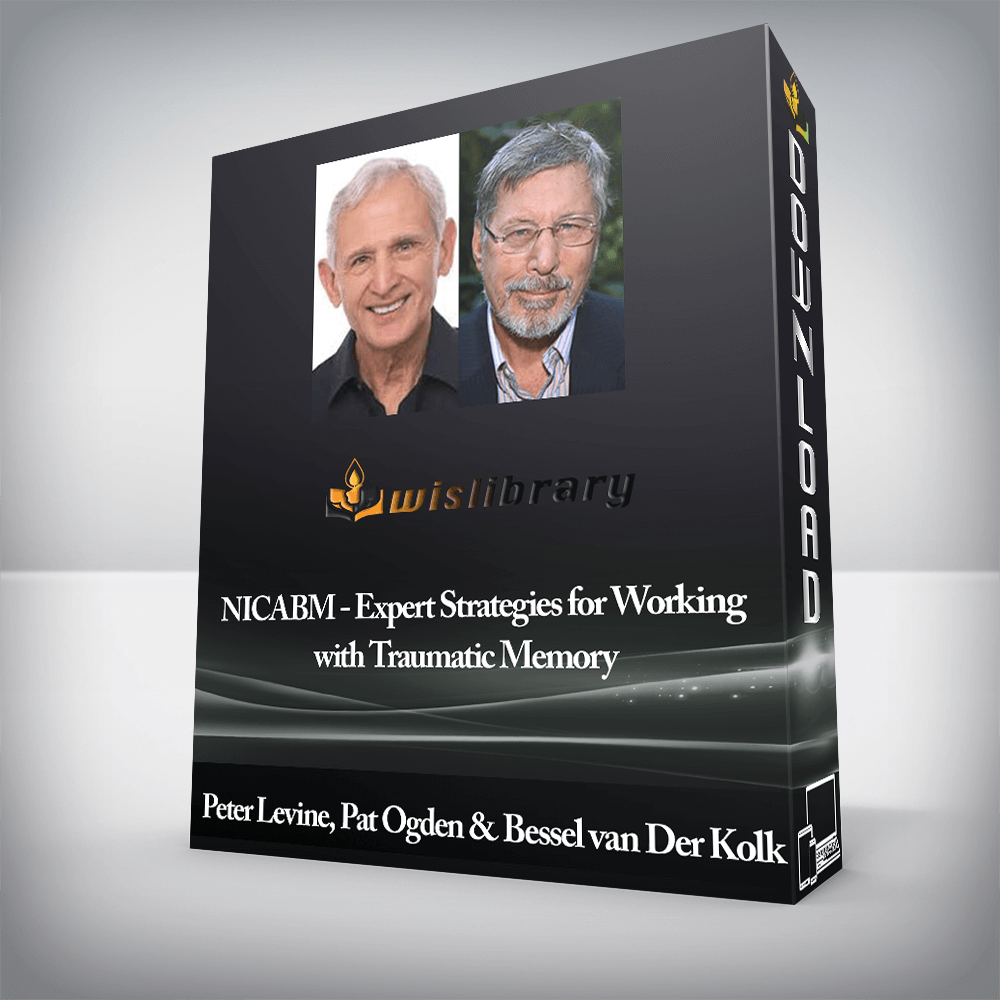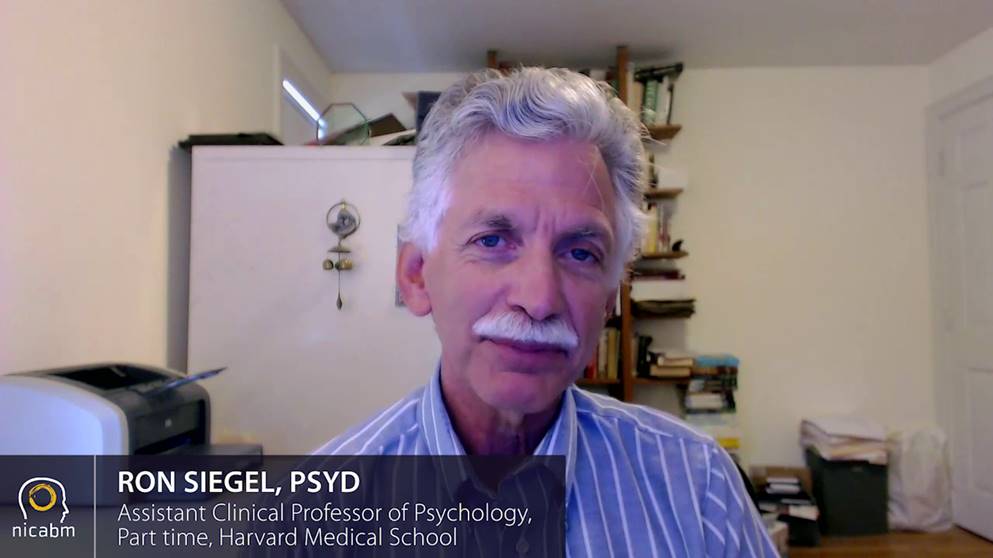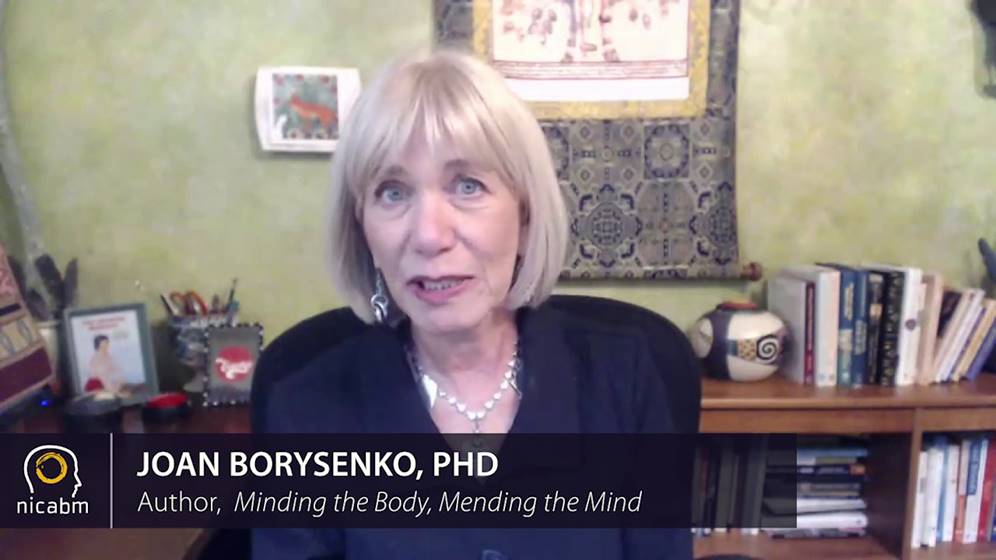Peter Levine, Pat Ogden & Bessel van Der Kolk – NICABM – Expert Strategies for Working with Traumatic Memory

Long after danger has passed, your clients may still live with trauma . . .
. . . which can leave clients feeling hypervigilant, dissociative, or numb for years to come.
So to help clients heal, we need to understand what makes traumatic memory so overwhelming, and the most effective ways to work with it.
Not only that, we need strategies so clients can “unlearn” maladaptive responses to trauma.
That’s why we created a course that focuses solely on how to work with traumatic memories.
Three of the world’s top experts will share how they treat clients who have experienced trauma. This program brings together their sharpest strategies for working with traumatic memory.
Expert Strategies for Working with Traumatic Memory
How Trauma Affects the Four Types of Memory
Peter Levine, PhD Bessel van der Kolk, MD
- The Core Problem with Focusing on a Client’s Traumatic History
- How Trauma Disrupts a Client’s Ability to Make Meaning from an Experience
- The Specific Type of Memory That Trauma Can Shut Down (That Robs Our Clients of a Sense of Purpose and Direction)
Why Clients Might Feel Like Trauma Is Happening in the Present
Bessel van der Kolk, MD Peter Levine, PhD
- How to Avoid Triggering a Client’s Reactive or Protective Response When Working with Trauma
- The One Key Factor That Can Make Traumatic Memory Overwhelming (and How to Work with It)
- How Trauma Derails the Time-Keeping Part of the Brain (and One Way to Bring It Back)
- What Can Go Wrong When We’re Helping a Client Come Out of a Dissociated State
How Trauma Can Affect Procedural Memory and Create Maladaptive Patterns
Bessel van der Kolk, MD Pat Ogden, PhD Peter Levine, PhD
- How to Help Clients Become Aware of Maladaptive Procedural Memory Patterns
- Why Procedural Memories Can Be Challenging for Our Clients to Work With
- What to Do When There’s a Procedural Pattern in a Client’s Thoughts
What Can Happen When a Procedural Memory Becomes “Stuck”
Peter Levine, PhD Pat Ogden, PhD
- Two Ways to Approach Procedural Memory That Gets Expressed Through the Body
- Case Study: Working with a Symptom When There’s No Memory of Trauma
- How to Work with Traumatic Memory That Forms at a Preverbal Level
Four Strategies to Help Clients Tolerate and Process Traumatic Memory
Pat Ogden, PhD Bessel van der Kolk, MD
- How to Help Clients “Unlearn” Maladaptive Responses to Trauma
- How to Build Up Inner Resources to Prevent Overstimulation and Shutdown
- How to Uncover “Survival Resources” and Transform a Traumatic Memory
- How to Help Clients Change Their Orienting Habits to Feel Calmer
Critical Insights on How to Work with Traumatic Memory
Ron Siegel, PsyD Ruth Lanius, MD, PhD
- How to Help Clients Learn to Differentiate Between the Past and the Present
- How to Help Clients Create a “Grounding Kit” to Soothe the Flashback Experience and Bring Them Into the Present Moment
- Case Study: When a Flashback Is a Form of Self-Punishment
Key Concrete Practices for Addressing Trauma Memories
Joan Borysenko, PhD Bill O’Hanlon, LMFT
- How to Regenerate the Hippocampus to Help Clients Repair Memory after Trauma
- Two Techniques to Help Clients Who Have Experienced Trauma Reorient to a Hopeful Future
- Making Meaning Out of Trauma: A Case Study
Here’s What You’ll Get:
Everything is yours to keep forever in your professional library
 |
Downloadable videos so you can watch at your convenience, on any device |
 |
Audio recordings you can download and listen to at home, in the car, at the gym or wherever you like |
 |
TalkBack Segments to distill key ideas (this is where we “land” the session) |
 |
Next Week in Your Practice sessions to give you concrete strategies to use with patients |
 |
Professionally-formatted transcripts of the sessions, to make review and action simple |
 |
Two downloadable bonus videos to help you work more effectively with traumatic memory |
Plus, You’ll Get Practical Tools to Help You Take Action Immediately and Effectively
Synthesize Key Concepts So You Can Use Them Immediately
In the TalkBack Session, Ron Siegel, PsyD and Ruth Lanius, MD, PhD join me to dig more deeply into the key ideas. Our job is to make yours easier by streamlining the information and making sure each point is crystal clear. We’ll clarify critical concepts and break it all down so you can gain confidence in your understanding.
Discover Concrete Practices That Will Work in Your Life (and with Your Patients)
Then, with “next week” in mind, we’ll turn smart ideas into easy-to-use applications for your work. In Next Week in Your Practice, Joan Borysenko, PhD and Bill O’Hanlon, LMFT join me to give you specific practices and exercises based on each session. You’ll get strategies you can use with your clients right away.
Uncover Core Ideas and Techniques at-a-Glance So You Have a “Cheat Sheet” When You Need It Most
The QuickStart Guide will help you stay fresh and confident as you turn these teachings into action. We’ve gathered all the essential tools and methods from the program into a concise, easy-to-use guide so you can quickly review and apply these ideas when you need them most. It’s an at-a-glance reference to the most powerful concepts and strategies for working with patients who have experienced trauma.
Quickly Recall Crucial Details So You Can Apply Them with Confidence
Our Professional Transcript will help you reinforce key ideas so you can integrate them into your life and work. We’ve designed your transcript with an easy-to-use table of contents, clear, organized formatting, and helpful highlight quotes so you’ll have the information and exercises you need at your fingertips.













You must be <a href="https://wislibrary.net/my-account/">logged in</a> to post a review.